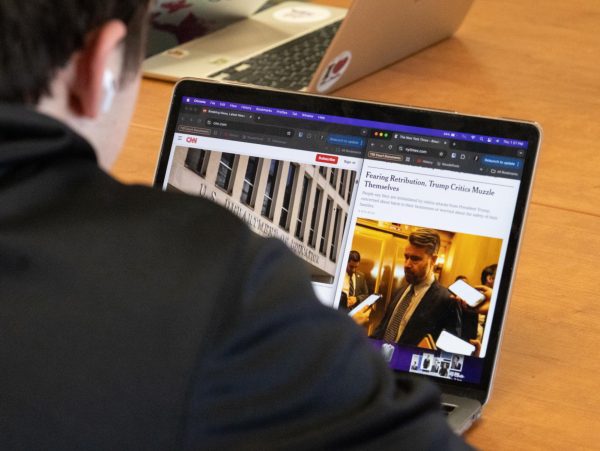Editorial: Make college affordable for everyone
Senator Bernie Sanders received a lot of attention and support this past year for his stance that public colleges and universities should be free. In fact, it was a key reason he was particularly successful among millennials. The cost of college is something that is on every student and parent’s mind, and they start worrying about it much earlier than senior year.
Mr. Timothy Gibson, director of college guidance and student life, begins to talk to students about college in fourth grade, and students start meeting with him individually as early as freshman year.
It’s no surprise that students and families have begun preparing so early – college has become necessary for almost anyone who would like to be successful in the work career. On average, the yearly earnings of a worker with a college degree are about double the yearly earnings of someone with only a high school degree, according to a 2005 report by the Census Bureau.
At the same time, the cost of college tuition and fees has increased by 439 percent since 1982, according to a 2008 report by the National Center for Public Policy and Higher Education. According to the College Board, the average cost of a private school this past year was $33,480, and the average cost for an out-of-state student attending a public university was $24,930. And the costs are only getting higher.
Colleges raise their tuition for many reasons, some of which are unavoidable, but we at the Lodge are concerned by the rise of the “country-club culture,” where students receive special services such as dry cleaning, gym memberships, facility upgrades and even tanning beds on campus. These sorts of services are nice luxuries, but they raise costs while doing nothing to raise the quality of education.
Louisiana State University is building a lazy river in the shape of its initials. Michigan Tech University has its own private ski resort. High Point University has a private steakhouse, a free movie theater and televisions in dorm rooms. College has one primary purpose: to provide a higher education. Instead, college luxuries are getting out of hand, turning schools into private resorts. Instead of building lazy rivers and movie theaters, maybe it’s time to scale back and use these funds in financial aid packages for students instead.
Some might argue that “country-club culture’ isn’t the primary cause for the rise of college costs, but it’s certainly not helping. Instead of putting time, money and energy into the amenities arms race, colleges should be worrying about how they can lower their tuition and fees.
Colleges fear that if they lower their tuition, they will not have enough money to operate with, but that is not the case. According to Forbes Magazine, schools that have reduced their price over the last few years have witnessed an increase in enrollment and income. It’s a win-win.
If college is such a necessity for success, then colleges and universities need to plan accordingly and make them available to everyone. Sanders started the conversation – it’s time for us to finish it.






